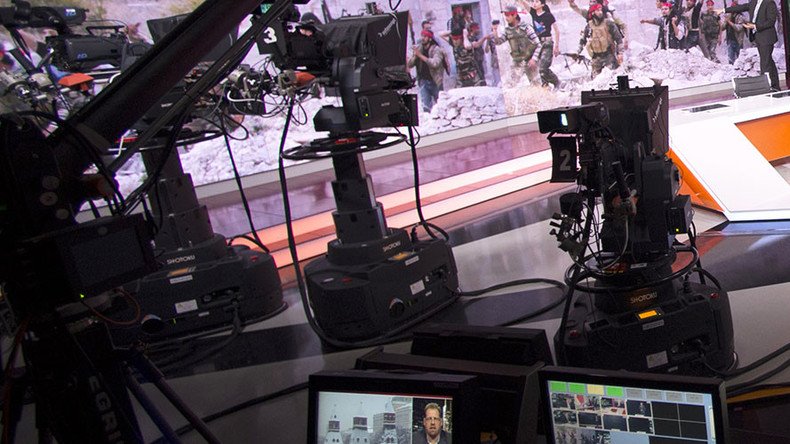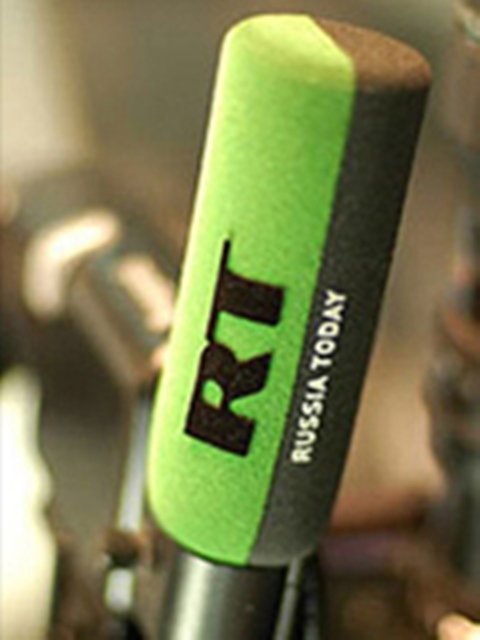Europe Today: The EU proposes new channel to up its 'Blame Russia' game

Eurocrats are finding it more difficult these days to blame every negative event and situation in Europe on Russia. That doesn’t stop them trying.
Recently, they’ve been hard at work linking Moscow to the – predominantly Libyan, Syrian, Afghan and Iraqi (in origin) – migrant crisis, despite the fact that Russia only intervened in one of those countries [with its blessing] and America and its NATO appendage bombed all four and invaded two [without].
Russia, and RT in particular, also have been blamed for promoting Brexit, even though a whole lot of the UK popular press (The Daily Mail, The Sun and the The Daily Telegraph to name just a few) is in favor of Britain leaving the EU. Don’t forget the Panama Papers scandal either: Vladimir Putin led initial press coverage, despite not being named at all in the disclosure. At the end he still somehow ended up being the man - according to Western media accounts - behind the apparent conspiracy.
The Dutch referendum on Ukraine was another “blame Russia” event, despite exit polls making it clear that Moscow’s influence on the result was benign. Guess what they cited instead? “The EU's lack of transparency, lack of Ukrainian reform on corruption, fear of eventual EU membership for another large, poor eastern state and internal Dutch disillusion with the country’s elite.” WHOWOUDDATHUNKIT.
Now, the latest attempt to pin all the EU’s failings on Russia is a "Europe Today" TV channel. Whatever this enterprise is supposed to be, it has been proposed by Elmar Brok, the German head of the European Parliament Committee on Foreign Affairs. Maybe imitation is the sincerest form of flattery after all.
The Good Old Days
Once upon a time, it was all so simple for the Western establishment. And it came with sound, rather than vision. America’s CIA had its Radio Liberty, broadcasting Washington’s ideology to the Communist world. Britain’s BBC and its World Service commended itself on impartiality and promotion of democracy while maintaining vast colonial presence.
US intelligence services also had a tight rein on the, outwardly independent, corporate media, as “Watergate” legend Carl Bernstein outlined over 25,000 words in a seminal 1977 Rolling Stone expose:
“In 1953, Joseph Alsop, then one of America’s leading syndicated columnists, went to the Philippines to cover an election. He did not go because he was asked to do so by his syndicate. He did not go because he was asked to do so by the newspapers that printed his column. He went at the request of the CIA," Bernstein wrote. “Alsop is one of more than 400 American journalists who in the past twenty five years have secretly carried out assignments for the Central Intelligence Agency, according to documents on file at CIA headquarters.”
Against this powerful machine, the USSR’s Radio Moscow operated as a lone counterweight in attempting to offer a different perceptive.
A Game Changer
Then came the 1980’s. CNN revolutionized journalism by pioneering rolling news. By the middle of the decade, the concept had hit its stride. Britain’s Sky News, Japan’s Nippon Cable News and the pan-continental EuroNews were among the first follow-up acts. The 1991 Iraq War galvanized the format, with ratings rising massively for CNN and Sky News in what became known as the “first televised war.”
By the turn of the millennium, the likes of Bloomberg, CNBC, BBC World and Fox were firmly established. Meanwhile, Russia trundled along with Voice of Russia, a re-branded, newly open to capitalism, version of Radio Moscow.
RT was launched in 2005. It’s now part of a crowded field of rolling news organizations from non-Anglosphere countries – such as Al Jazeera (Qatar, 1996), CCTV (China, 2000), Press TV (Iran, 2007), DW (Germany, 2001) and France 24 (2006). The latter pair have an almost identical editorial line to the BBC, CNN and the others from the myriad of Western NATO-zone broadcasters.
And of course, the EU boasts EuroNews. This curious construct, privately owned but also funded with EU taxpayers money, pushes the EU’s line on world events. Brok seems to have forgotten the entire existence of the poor, neglected EuroNews in his enthusiasm to copy RT.
Reasons To Believe
States, and blocs like the EU, invest in foreign broadcasting to project their worldview and give their own perspective on events. Of course, any news channel has a duty to stick to the facts in order to retain credibility. Nevertheless, there will always be diverging interpretations of news, which is only natural – and in fact, these broadcasters do own up to this agenda to an extent:
Jeffrey Shell, Chairman of the US government-funded BBG has stated that the international broadcaster in his charge is “in the business of trying to influence people to feel better about America,” while the BBC talking heads – alongside UK government officials – often tout the British news giant’s critical role in the proliferation of “British values and interests globally.”
Likewise it should be expected that a Russian network will have a rather different perspective on events in Ukraine, compared to any given US equivalent. Just like CCTV and BBC could hardly be expected to mimic each other’s position on Hong Kong.
RT was founded in response to overwhelmingly constricted and partial coverage of Russia across the Western corporate media and state-funded apparatuses, like Radio FreeEurope/Radio Liberty, (RFE/RL) Voice of America (VoA) and BBC. This network has been massively successful on traditional platforms (70 million weekly TV viewers in 38 countries, according to Ipsos) and in digital (over 100 million unique monthly visitors to RT.com websites – more than Euronews, DW, France 24, Al Jazeera and all of the BBG outlets combined) and social media (world leader on YouTube, with 3.3 billion views and counting).
That success has engendered much panic in certain policy circles across Brussels and Washington. These constituencies have been used to an almost complete dominance of the international information-space for as long as it has existed. RT’s popularity scares them, because it denies them absolute control of the narratives.
Eurocrat Solutions
Hence, various schemes to “counter RT.” America’s Broadcasting Board of Governors, which oversees RFE/RL and VoA, receives more than $750 million annually, compared to RT’s current 17 billion rubles ($257 million at today’s exchange rate).
Nevertheless, the BBG is currently looking for even more money, insouciantly claiming the underdog position. Additionally, various lobby groups, like The Atlantic Council and CEPA, both funded by the US government – particularly the State Department and the Department of Defense () respectively – have launched various initiatives aimed at pushing back on RT. The EU itself had set-up “Stratcom East,” a project aimed specifically at fighting “Russian disinformation,” which rarely lands a blow on RT where actual facts are concerned.
Now, Elmar Brok has a totally fresh, new, original idea. He thinks EuroNews, France 24, BBC, DW and the echo-chamber of European corporate media are not enough. So, he’s advocating the establishment of a “Europe Today.”
Speaking to the EU’s internal “Europarl TV,” Brok made a number of peculiar and ill-informed claims. Clearly under the illusion that RT has more money than EU resources, Brok said: “(We need) a 'Europe Today' and perhaps better cooperation between the BBC, Deutsche Welle and the French channels. And I think we have to put much more money into that. I saw it the other day in Iraq where it was done in Arabic,” he stated. “There was no BBC and no Deutsche Welle, but there was Russia Today at the hotel. Then you see how well it's spread everywhere. And we are not much competition for that.”
If RT is providing better coverage than BBC, DW and France 24, it’s not because of money – despite what the perpetually “poor” western media and political establishments would like you to think . But actual numbers don’t matter in this cash call.
Brok doesn’t outline how much the EU would splash out on “Europe Today,” in addition to the current largesse. Or – most importantly – what the new outpost would do differently from dozens of other ones, in order to win back the hearts and minds of the European populace from the Big Bad Russian media.
It looks like yet another Eurocrat is reluctant to even entertain the possibility that the problem might not be the medium, but the message. Europeans are clever enough to know when the “blame Russia” game is nothing more than a deflection tactic.
The statements, views and opinions expressed in this column are solely those of the author and do not necessarily represent those of RT.













